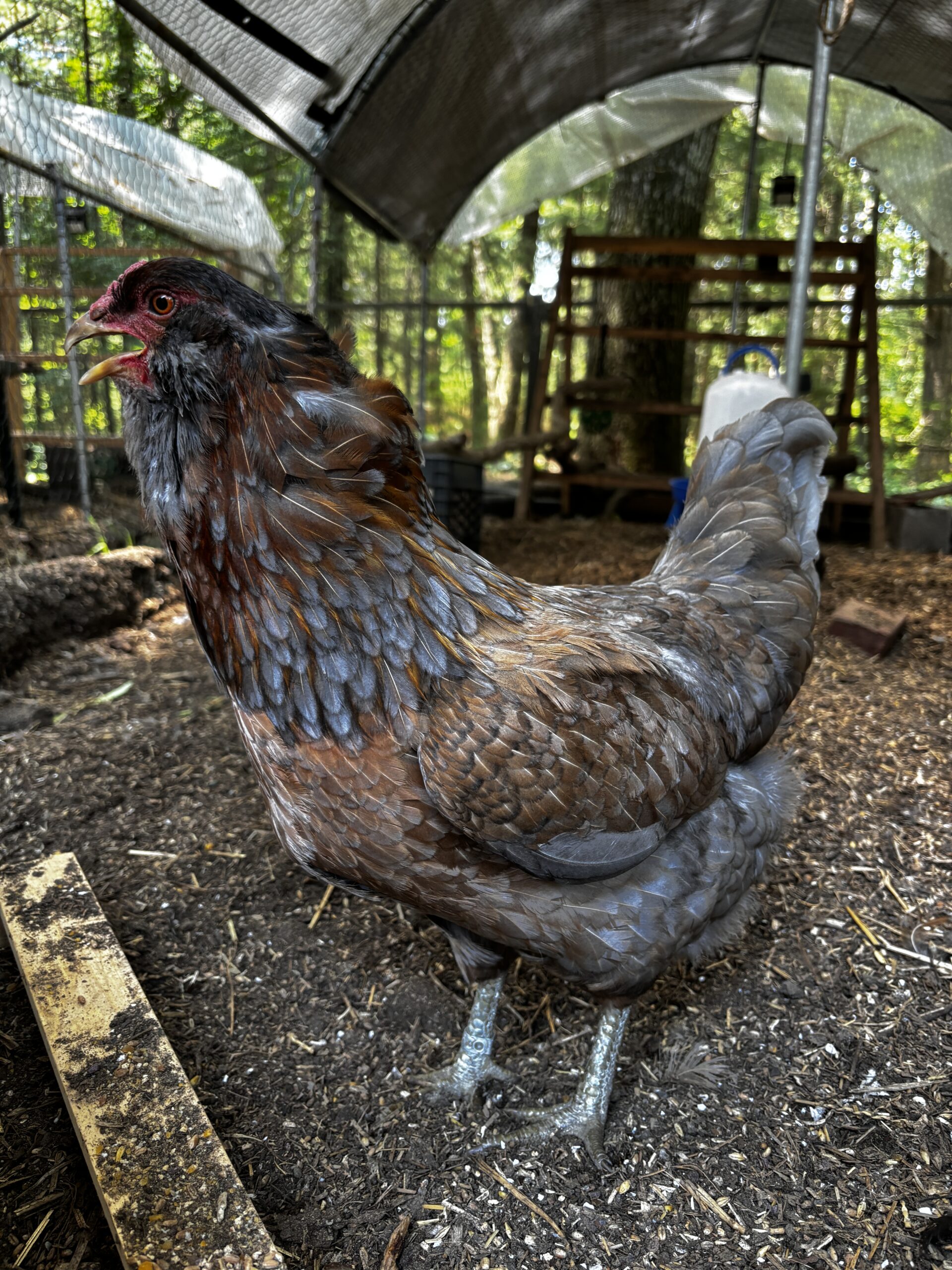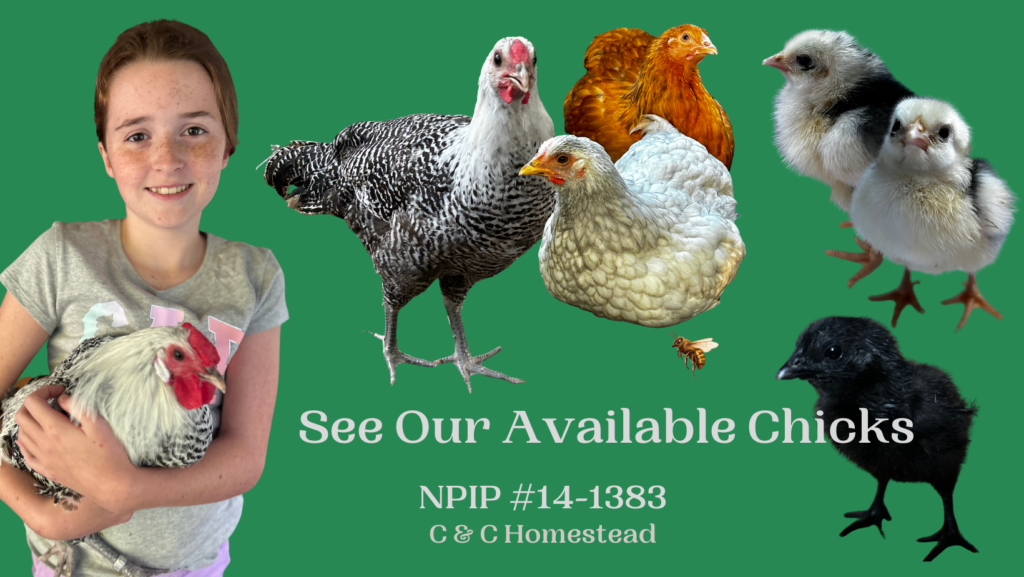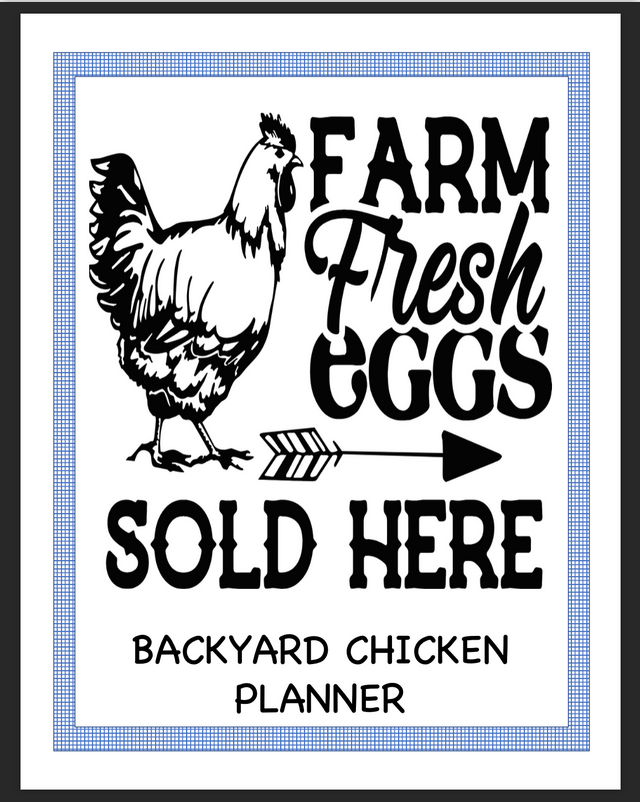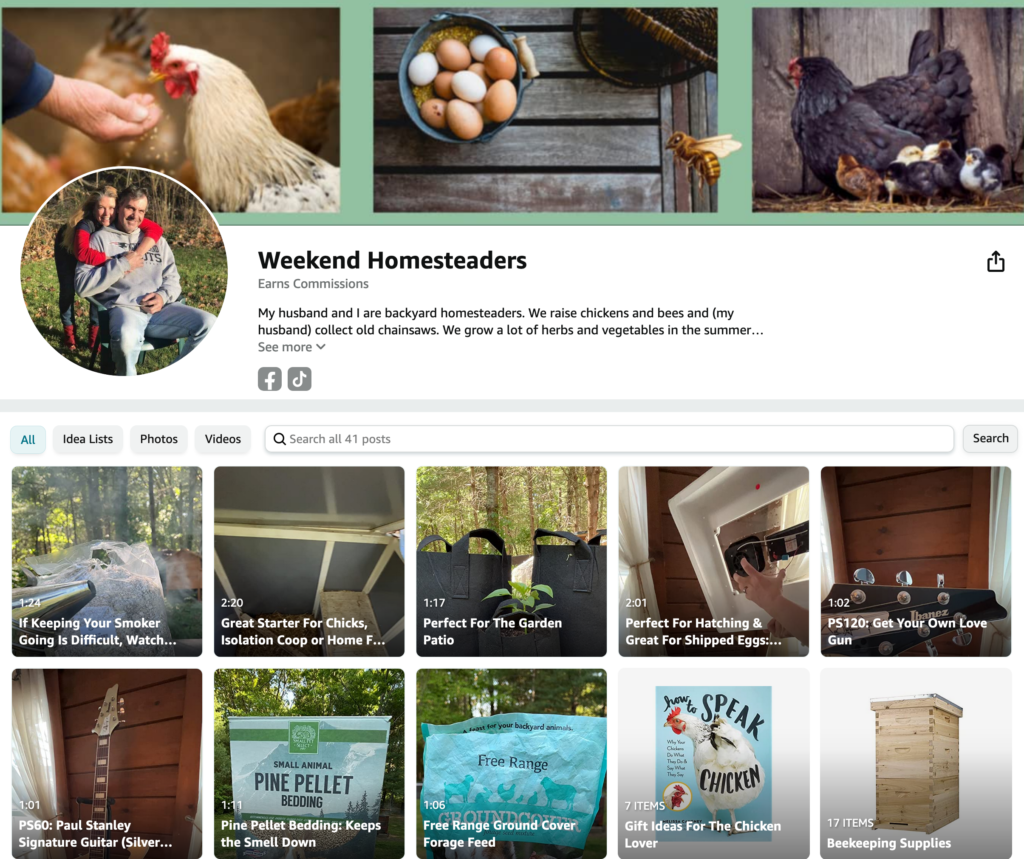Balancing Corporate & Homesteading Lifestyles
Feeding Chickens In Summer Heat
Posted on June 22, 2024 by Weekend Homesteader

As temperatures rise in the summer, it's crucial to adapt your feeding strategies to ensure your chickens remain healthy, comfortable, and productive. Heat stress can significantly impact chickens, leading to decreased egg production, slower growth rates, and even health issues. Here’s a detailed guide on how to feed your chickens during the hot summer months to help them thrive.
Feeding Chickens in the Summer HeatChickens do not sweat like humans do; they rely on other methods to cool down, such as panting and seeking shade. Prolonged exposure to high temperatures can lead to heat stress, which manifests through symptoms such as:
- Panting: Rapid, open-mouthed breathing to cool down.
- Lethargy: Reduced activity and reluctance to move.
- Reduced Feed Intake: Chickens tend to eat less in hot weather, which can affect their nutrition.
- Pale Combs and Wattles: A sign of poor circulation due to heat stress.
Strategies for Feeding Chickens in Summer Heat
- Hydration is Key
Constant Access to Fresh Water:
- Chickens need plenty of water to regulate their body temperature. Ensure they have constant access to clean, fresh water.
- Water Stations: Place multiple water stations around the coop and run to ensure all chickens can access water without competition.
Cool Water:
- Replenish water frequently to keep it cool. You can add ice cubes to waterers on extremely hot days to help lower the temperature.
- Electrolytes and Vitamins: Adding electrolytes and vitamins to the water can help prevent dehydration and replenish essential nutrients lost through panting.
- Here is a simple electrolyte recipe I make for my flocks.
- Feeding Times
Morning and Evening Feeding:
- Chickens eat less during the hottest parts of the day. Offer feed early in the morning and late in the evening when temperatures are cooler.
- Smaller, Frequent Meals: Providing smaller, more frequent meals can encourage chickens to eat more consistently throughout the day.
- Nutrient-Rich Feed
High-Quality Feed:
- Ensure the feed is of high quality, providing all essential nutrients even if chickens consume less food overall.
- Protein Levels: Slightly increase the protein content of the feed to compensate for reduced intake and support growth and egg production.
Pellets and Crumbles:
- Opt for pellets or crumbles as they are less likely to spoil in the heat compared to mash. They also ensure chickens receive balanced nutrition with every bite.
- Supplemental Feeding
Hydrating Treats:
- Offer hydrating treats that provide both nutrition and moisture. Examples include watermelon, cucumber, cantaloupe, and zucchini. These treats help keep chickens cool and hydrated.
- Frozen Treats: Create frozen fruit or vegetable blocks to provide a refreshing and enriching snack. Simply freeze pieces of fruits or vegetables in water and offer them during the hottest parts of the day.
Electrolyte Solutions:
- Make an electrolyte solution using water, sugar, baking soda, and salt to support hydration. Commercial electrolyte powders are also available and can be added to the water.
- Environmental Adjustments
Shade and Ventilation:
- Ensure your chickens have access to plenty of shade throughout the day. This can be natural shade from trees or artificial shade from tarps and shelters.
- Ventilation: Improve airflow in the coop by adding vents, fans, or windows. Good ventilation helps reduce the overall temperature and humidity inside the coop.
Dust Baths:
- Provide areas with dry, loose dirt for dust bathing. Dust baths help chickens regulate their body temperature and stay cool.
- Monitor Health and Behavior
Regular Checks:
- Monitor your flock regularly for signs of heat stress. Pay attention to their behavior, feed and water intake, and physical appearance.
- Isolation of Affected Chickens: If a chicken shows severe signs of heat stress, isolate it in a cooler area and provide immediate care, including cool water and electrolytes.
Additional Tips for Summer Chicken Care
Adjust Coop Bedding:
- Use lighter bedding materials like straw or wood shavings, which are less insulating than heavier bedding and help keep the coop cooler.
Provide Dust Baths:
- Chickens cool themselves by taking dust baths. Ensure they have access to dry, loose soil or sand where they can dig and bathe.
Offer Cooling Options:
- Place shallow pans of water in shaded areas where chickens can stand to cool off their feet. This can significantly help in reducing body temperature.
Observation and Adaptation:
- Every flock is different. Continuously observe your chickens and be ready to adapt your strategies based on their specific needs and behaviors during heat waves.
Conclusion
Feeding chickens in the summer heat requires a thoughtful approach to ensure they remain healthy and productive. By focusing on hydration, adjusting feeding times, providing nutrient-rich feed, and incorporating hydrating treats, you can help your chickens cope with high temperatures. Additionally, making environmental adjustments to provide shade and improve ventilation will further support your flock's well-being. With these strategies in place, your chickens can thrive even in the hottest summer months.
Category: Chickens, General, Homesteading Tags: Chickens



Latest Posts
Categories
Post Tags
Affiliate Marketing Affirmations Animal Grooming Animal Health Animal Reiki Animal Rescues Animals avian flu backyard chickens backyard flock Beekeeping Bees biosecurity bird flu Business Business Strategies Cats CBD chick care chicken care chicken health Chickens chicken treat chick health Cluck Kent Dogs Dog Training First Aid Gardening Health Herbs For Chickens Homesteading Long Covid Marek's Disease Mindset Pawsome Deals Personal Stories Places quarantine Reiki Rooster Roosters The Pawsitive Cause Project Time Management Trail Cam
Copyright © 2025 · All Rights Reserved · Weekend Homesteader
Theme: Natural Lite by Organic Themes · RSS Feed
